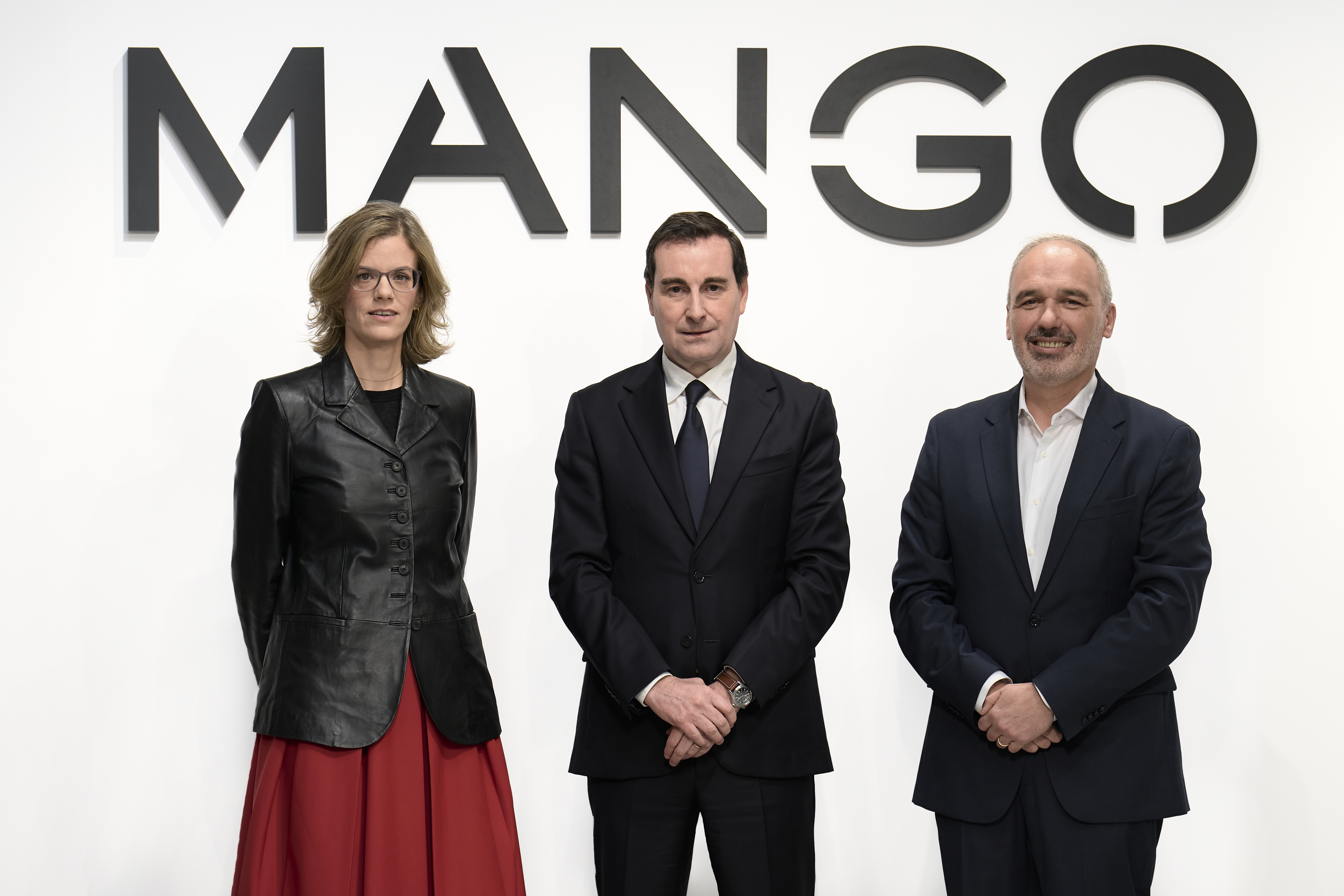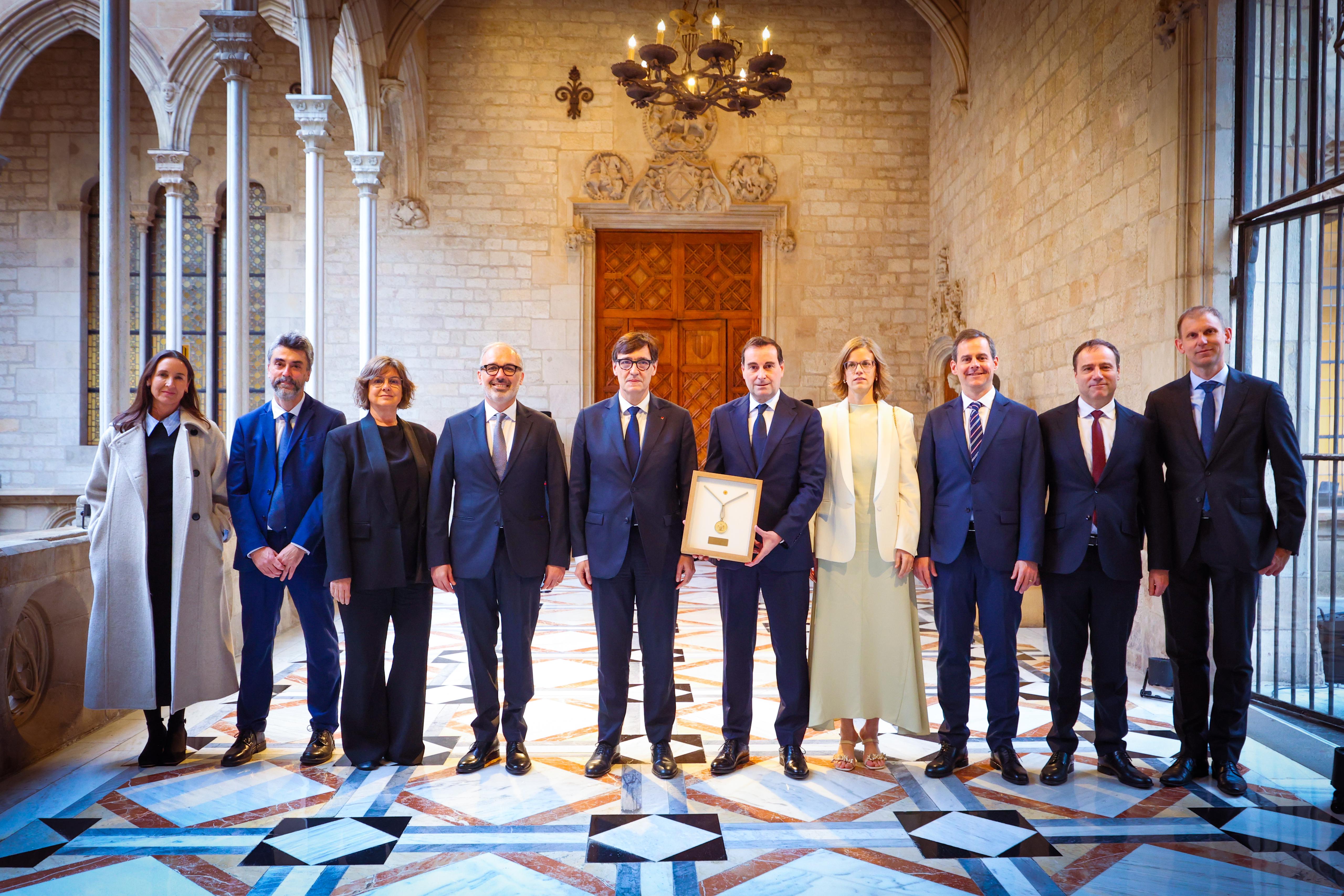RE-VISTE presents its first pilot for textile waste collection in Spain
Descargar fotos

1 photos in total
RE-VISTE presents its first pilot for textile waste collection in Spain
-
- The Association for the Management of Textile and Footwear Waste has presented this Thursday the new name under which, from now on, the SCRAP (Collective System of Extended Producer Responsibility) will operate.
- It has also announced the start of the pilot test that will begin in April 2025, in which RE-VISTE, with the collaboration of the FEMP (Spanish Federation of Municipalities and Provinces), will supervise and monitor its correct implementation.
- Around 300,000 citizens from six urban, rural and semi-urban municipalities in different regions of Spain will participate in the pilot project.
The Association for the Management of Textile and Footwear Waste - formed by Decathlon, El Corte Inglés, H&M, IKEA, Inditex, KIABI, Mango, Primark, Sprinter/JD and Tendam - presented this Thursday RE-VISTE, the new name under which the SCRAP (Collective System of Extended Producer Responsibility) will operate from now on. At a meeting at the Royal Tapestry Factory, institutions and experts met to discuss the opportunities, challenges and advances in this new circular management system for textiles and footwear in Spain. In addition, details of the pilot test that will begin in 2025, which will allow the effectiveness and operability of the system to be evaluated, were revealed.
The project will be supervised by the Monitoring Committee, composed of the FEMP's Textile Waste Working Group and RE-VISTE, which will monitor its correct implementation in six municipalities representative of different socio-demographic environments: two urban, two rural and two semi-urban, with a total population of around 300,000 inhabitants.
Alejandro Dorado, Commissioner for the Circular Economy of the Ministry for Ecological Transition and the Demographic Challenge, underlined the importance of this pilot test: "The textile sector has a fundamental role and a very important weight in our country. It represents 3% of GDP, 8% of imports and has a turnover of 15,000 million. With the creation of RE-VISTE you are demonstrating an incredible capacity to connect different actors and leave the door open to new ones for the transformation of the sector".
"This pilot project is an important step in bringing together all the key players and working together to create an efficient and sustainable system to establish a correct collection of textiles and footwear, in line with regulatory challenges and societal demand," said Juan Ramón Meléndez, CEO of RE-VISTE. "Since the foundation of the association in 2023, our goal has always been to enable the transition to a more efficient model of waste management, and this pilot will help us move in that direction”.
Likewise, Marta Gómez Palenque, Director General of Environmental Quality and Assessment of the Ministry for Ecological Transition and the Demographic Challenge assured that "this SCRAP is a key tool to move towards circularity and responsible management. To achieve this, the sector needs the commitment and collaboration of many actors: producers, municipalities, local authorities, recyclers and finally, consumers, who have the power to transform the ecosystem. The SCRAP should be an instrument to advance circularity with transparency, ensuring efficient and sustainable management".
Cristina Montalvá Medina, Director General of Equality and Local Policies of the FEMP (Spanish Federation of Municipalities and Provinces) noted that "it is essential to create a quality system that has the capacity to adapt to the specific needs of each municipality, providing citizens with an efficient collection service. We must not forget that they are key to the proper functioning of the system, so it is essential to take care of them".
In addition, Alberto Alberich, Director of Moda Re, Carmen Redondo, Director of Institutional Relations of Hispacoop and Ana Rodes, Director of Sustainability of Recover agreed on the importance of Spain developing a strong recovery sector that allows for the creation of a circular economy around textiles and footwear.
The pilot project: flows, functioning and duration
On the other hand, various options for textile collection will be analysed to implement an efficient system that can be adapted to different municipal contexts. The collection routes will include the installation of specific containers on public roads and at municipal clean points. Moreover, collection points will be set up in private spaces such as shopping centres, shops, schools and parishes, extending the collection network to different environments and facilitating citizen participation.
After collection, textile products will be transported to sorting plants, where they will be evaluated according to the waste hierarchy principle. Items that are in good condition will be destined for sale in second-hand shops. Those that are not ready for reuse will be sorted according to their composition (such as cotton or polyester) to facilitate their subsequent recycling, with the aim of transforming them into new textiles.
The pilot project will last at least one year. At the end of the project, the aim is to produce a guide of recommendations that will include the good practices identified, in order to provide local authorities with tools and guidelines that will enable them to successfully implement selective textile collection in their territories.
"The system we are creating will not only facilitate textile management, but also promote a sustainable model that involves all actors in the value chain. Collaboration and participation are key to make the circular economy of textiles effective, allowing each person and company to contribute to a more efficient and innovative future", concluded Juan Ramón Meléndez, CEO of RE-VISTE.
Mango, one of Europe's leading fashion groups, is a global company with design and creativity at the heart of its business model and a strategy based on constant innovation, the pursuit of sustainability and a complete ecosystem of channels and partners. Founded in Barcelona in 1984, the company closed 2024 with a turnover of over 3,300 million euros, with a third of its business coming from the online channel and a presence in more than 120 markets. More information at mangofashiongroup.com



